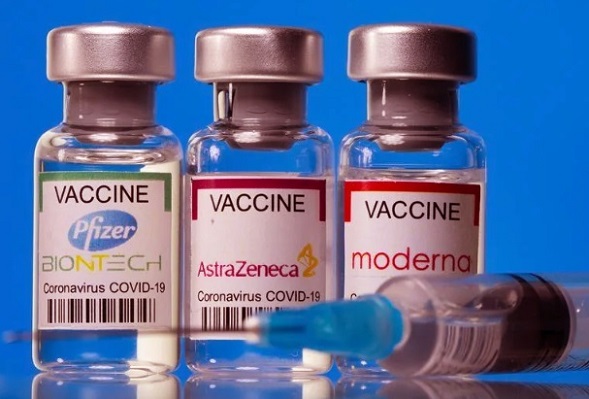Japanese Study Uncovers Why the COVID-19 Vaccinated Are More Vulnerable to Reinfection or Breakthrough Infections
Nikhil Prasad Fact checked by:Thailand Medical News Team Jul 13, 2025 7 months, 1 week, 5 days, 1 hour, 43 minutes ago
Medical News: New Study Shows Waning Immunity From COVID-19 Vaccines Due to Loss of IgA and IgM Antibodies
A new study by scientists from Kyoto University and Kanazawa University in Japan has revealed that the body’s ability to fight off different COVID-19 variants weakens over time after vaccination, not simply because of declining antibody levels—but because specific types of antibodies called IgA and IgM are lost. This could help explain why people become more vulnerable to reinfection or breakthrough infections just months after being vaccinated.
 Japanese Study Uncovers Why the COVID-19 Vaccinated Are More Vulnerable to Reinfection or Breakthrough Infections
Japanese Study Uncovers Why the COVID-19 Vaccinated Are More Vulnerable to Reinfection or Breakthrough Infections
The research found that while overall antibody levels drop after vaccination, the biggest concern is the disappearance of these two types of antibodies which are more effective at neutralizing diverse and mutated forms of the virus. This
Medical News report highlights a growing concern about the long-term strength of our current vaccine-based immunity.
Understanding Antibodies and Their Roles
When someone gets vaccinated against COVID-19, the body produces three main types of antibodies: IgG, IgA, and IgM. IgG is the most common and sticks around the longest, which is why it's been the focus of most vaccine research. But this new study shows that IgA and IgM—though shorter-lived—are much better at stopping newer and more heavily mutated versions of the virus.
The research team discovered that IgA and IgM, because of their unique structures, can attach more strongly to the virus, especially when the virus has changed its shape. These antibodies are also better at recognizing different forms of the spike protein, especially when spike density is low or arranged differently, as seen in some variants.
Key Findings from the Study
Using blood samples taken one and three months after mRNA vaccination, researchers ran a series of lab tests. They found that:
-Antibody levels dropped overall at the three-month mark, but the sharpest decline was in IgA and IgM.
-Samples taken one-month post-vaccination could neutralize a wider range of SARS-CoV-2 variants, including harder-to-control strains like Lambda and Omicron.
-The Lambda variant was surprisingly more sensitive to early-phase antibodies despite being very different from the original Wuhan strain.
-Electron microscope images showed that the Lambda virus had a wider range of sizes and spike arrangements, which made it easier for IgA and IgM to latch on and neutralize it.
-IgG antibodies, which remain longer in the body, were less effective when spike proteins were sparsely arranged—like in the Lambda variant—compared to IgA and IgM.
Why This Matters
The results suggest that while IgG antibodies are important, they are
not enough on their own—especially as the virus keeps evolving. The more powerful IgA and IgM antibodies disappear faster, weakening the body’s ability to fight off new variants. This could explain why some people get reinfected or fall ill again despite being fully vaccinated.
Future vaccines may need to focus not just on producing more IgG, but also on boosting and maintaining IgA and IgM responses over longer periods. This could lead to better protection against a wider range of COVID-19 strains, especially those that are structurally different from the original virus used in vaccines.
The study findings were published in the peer reviewed journal: Antibodies
https://www.mdpi.com/2073-4468/14/3/59
For the latest Vaccine News, keep on logging to Thailand
Medical News.
Read Also:
https://www.thailandmedical.news/news/doctors-warn-that-covid-19-vaccines-can-trigger-rare-skin-disease-called-sneddon-wilkinson-disease-in-some
https://www.thailandmedical.news/news/recombinant-spike-protein-using-insect-cells-in-nuvaxovid-vaccines-carry-strange-sugars-that-can-trigger-unexpected-immune-reactions
https://www.thailandmedical.news/news/twelve-percent-of-vaccinated-individuals-lack-key-covid-19-antibodies-raising-new-concerns
https://www.thailandmedical.news/articles/vaccine-news
